Back from ASHS
Well, I'm back from the ASHS meeting in New Orleans. Actually, I've been back for nearly a week, just been busy. A good meeting, maybe not the best I've been to, as attendance seemed to be down somewhat (might have been my imagination, I haven't seen the numbers). Still lots of the usual folks, though fewer of the Cornell people I usually try to catch up with. I can't believe it's been five years (almost to the day) since I worked there. Quite a few of the Arkansas and ex-Arkansas crowd, though, and it was good seeing them.
One of the highlights of the meeting was the American Pomological Society's session on blueberries. They had samples of a number of blueberry cultivars, including 'Rubel', which was one of Coville's original selections from the wild, and frankly it was better than 90% of what you get in the grocery store. Surprisingly good, really. I'd even consider planting it if I had a site. It would be interesting, if the all still exist, to line up all those original selections and see how they compare, as well as if one could see any of them reflected in today's. The session had quite a few speakers, covering a range of issues. Of particular interest to me was Arlen Draper, who I had the pleasure of meeting and chatting with briefly before the session. The man probably knows more about blueberries than anyone living, and was George Darrow's successor at the USDA. I got a little flash of what ASHS meetings of the 1950's might have been like as he spoke, in his white shirt and dark tie, with no slides, just speaking from the podium...I pictured a whole room of identically dressed men (probably some of them smoking), and talk after talk like that. He was good enough to pull it off, but I wonder if everyone was (of course, if you aren't used to PowerPoint, you don't expect that from a talk either...I suppose they probably had slides or overheads).
My wife once told me: "One thing I like about you is how fond you are of older people". It was amusing to hear her say it that way, and I never really thought of it that sense, but I've always had a deep respect, almost awe, for the giants of horticulture, and I feel deeply privileged whenever I get the opportunity to meet one of the men who laid the foundation for much of what we take for granted in the field today. 99% of the population neither knows nor cares who these people are, but I feel truly proud that I'll be able to say that I've met men like Arlen Draper, Jules Janick, Nelson Shaulis, and Jim Moore (I'm even Jim Moore's "academic grandson").
Anyway, other highlights included a day-long and surprisingly engaging session on intellectual property rights, primarily targeted at breeders. One speaker gave the statistic that where they've investigated, roughly 30% of patented fruit trees were illegally propagated (that is in the U.S., in Australia it's 15%). I'm not surprised it's high, but I'm a little surprised it's that high. It's a testament to how little enforcement there really is, because really, what does a fruit tree cost, compared to the money made off of it? Royalties may amount to a good chunk of change when purchasing hundreds or thousands at a time, but if there was a real risk of having to pull out producing mature trees a few years down the line, it wouldn't be worth it to anyone. Also discussed was the implications of the revised plant patent law, and how it's being used to limit breeding. I personally think that interpretation is a load of nonsense, and any common sense reading of the law should make that obvious, but clearly not everyone feels that way. One of the lawyers present suggested that valid or not, breeders at public universities need not worry, because the Constitution prevents people from suing states in federal court. An interesting observation, though it's worth noting the other lawyer there did not agree.
My own talk was in an inappropriate session at the very end of the conference, and was poorly attended, but it garnered lots of interest anyhow, and many people approached me before hand to discuss the work. I have a number of collaborations in the early stages as a result, and I'm excited to see how it all plays out. Had a good talk with Doug Bielenberg from Clemson about his work on the Evergrowing mutant in peach, which I've seen him present before. An interesting story, and I'm trying to keep close track of his work to see how it works out. Also met (or re-met) some folks from Cornell that I didn't know from my time there, and had a good talk about things Rosaceae, and especially strawberries, as well as things Cornell and things grad student.
I also had several exciting job prospects. One of them is in industry, which I'm still trying to get my head around, as I honestly never really thought about it because, really, how much private fruit breeding is there? It's an opportunity to work with the absolute cutting edge in fruit breeding, but it also brings a change of mindset and culture, so I need to really thinnk about it, but I think it's probably too good an opportunity to turn down. (My odds sounded good, but I don't actually have it yet, so some one else may make the decision for me.) Not my only opportunity, but the first one that requires action on my part. Very exciting, regardless. I must say the whole grad student thing is starting to wear a little thin.
Anyway, now I'm back and it's back to the grind, with slightly increased urgency. I'm really going to try to get back to regular posting here and do a few more genetics pieces. Some exciting stuff going on in the lab, but I probably ought to publish it the regular way, rather than on a blog. Tough to resist, though. Probably better that way. I think I bore about 90% of my readership when I start talking genetics. Luckily none of you are paying for this. (If you'd like to send me money, though, you can e-mail me and I'll make arrangments).
Labels: meetings


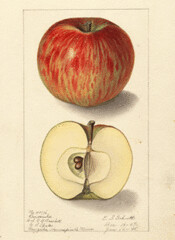
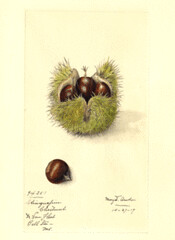
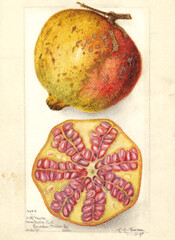
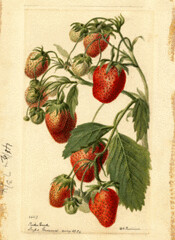
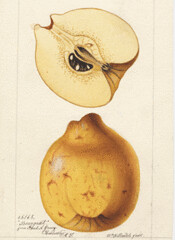



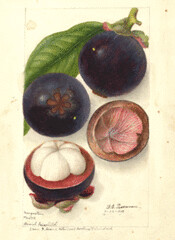
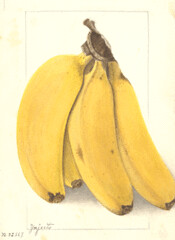

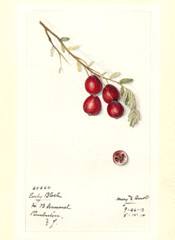
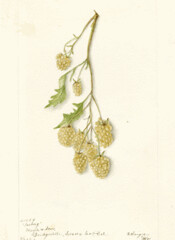
5 Comments:
"how much private fruit breeding is there?"
Zaiger Genetics. (I'm still working on filling up Ladera Frutal with all their good works!)
Who else?
Well, Zaiger's is really the only major one that comes to mind in the tree fruit business, although there are a few smaller players like Flaming Fury and Stellar peach breeding programs (I did a post on those a while back, but thanks to the fact Blogger's search engine sucks even I can't conveniently find them). At one point SunWorld was a pretty major player, doing grapes, peaches, and plums, but from what I've heard they've really scaled back after a bit of a crisis.
In the small fruit world there a few more. The biggest player is Driscoll's, with programs in strawberries, raspberries, blackberries, and blueberries, and some other smaller strawberry programs like Cal Giant and Plant Sciences. J&P Breeding here in Florida has had a considerable success with their 'Treasure' strawberry, but I haven't seen much indication that there's much else going on there. There are also a handful of private blueberry breeders, but I'm not entirely familiar with those. Ison's nursery has a muscadine grape breeding program...and I guess that does it for American companies that come to mind. (There are at least a handful more strawberry breeding programs in Europe.)
Think of any others?
I forgot about Driscoll and did not know most of the others (aside from J&P).
What about Stark Bros.? Did they get out of breeding?
Is Stark Brothers really doing breeding? My impression is that they've generally licensed their stuff from other people, sometimes attaching a name of their own to it (that drives me nuts.)
I saw something yesterday on another private peach breeder, but I'm drawing a blank right now...
Well, apparently Stark's attaching their name to stuff bred by others works, 'cause I just assumed...
The 'Donut' peach is also sold as 'Saturn' but that caused confusion with the fruiting-flowering variety by that name. So it is sometimes called 'Stark Saturn,' which might lead some to just assume they developed it.
And, of course, they sell a bunch of stuff with their name on it.
I've never bought anything from them. I grow the so-called Stark Saturn, but I did not get it from them. I got it from Raintree, and Raintree propagated (so to speak) the confusion, as their catalog gives it a patent number and say it has great showy double flowers.
Turns out it has neither. The regular 'Saturn' is patented (by whom I do not know) and has showy double flowers. 'Donut' (a.k.a. 'Stark Saturn') is, it turns out, not a patented variety. It also has about the third least showy blooms of any peach I have grown. (The others being 'Santa Barbara' and 'Arctic Supreme,' which have blooms so small and light you can barely see them!) And, of course, the regular 'Saturn' is not a flat peach.
As for the Raintree catalog, I wrote to them once to explain the error. But as far as I know, they have not ever corrected it.
Post a Comment
<< Home